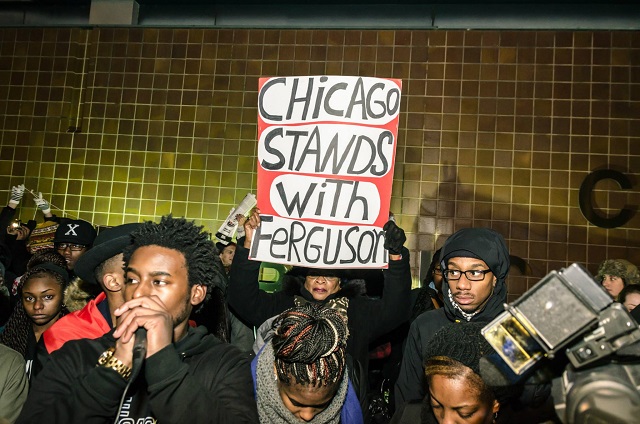
2014.11.25.Anderson.2Chicago emergency call to action in solidarity with Ferguson and Marissa Alexander. (Photo: Sarah Jane Rhee)

2014.11.25.Anderson.2Chicago emergency call to action in solidarity with Ferguson and Marissa Alexander. (Photo: Sarah Jane Rhee)
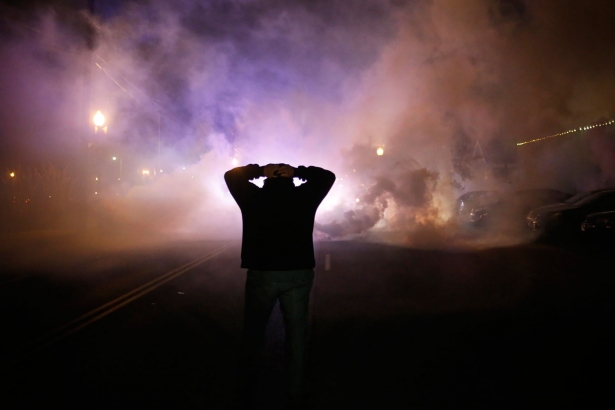
It has now been announced that Officer Darren Wilson will not be indicted on criminal charges for the killing of 18-year-old Michael Brown.
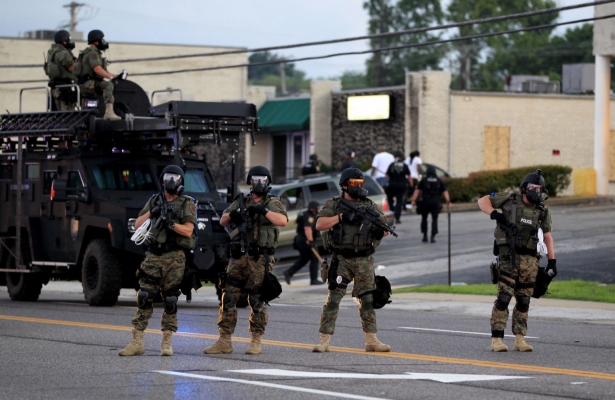
How to police the police is a question as old as civilization, now given special urgency by a St. Louis County grand jury’s return of a “no bill” of indictment for Ferguson, Missouri…
On August 9, 2014, a town in Missouri reminded the country and the world of the perils of being young and black. While tweeting and chanting “Black Lives Matter,” we waited and hoped that…
President Barack Obama’s unwillingness to wade deeply into the thicket of passions, grievances, suspicions, and resentments that materialized…
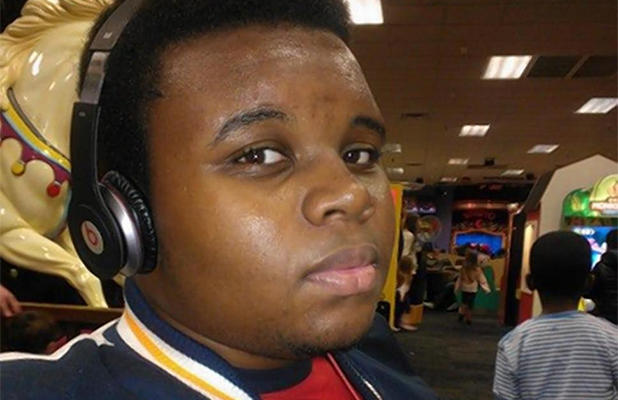
I have heard that phrase uttered countless times since the tragic shooting death of Michael Brown in Ferguson, Missouri, on a hot summer day this past August.

As we hold our breath waiting for the grand-jury decision on whether Officer Darren Wilson was justified in killing Michael Brown, an unarmed…
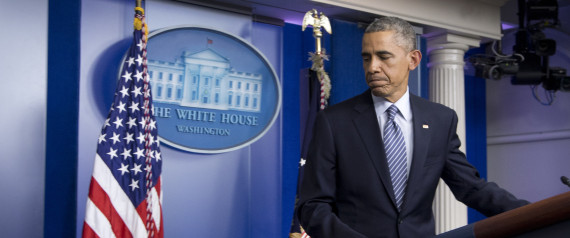
On March 22, 1991, a visibly shaken and angered President George H.W. Bush…
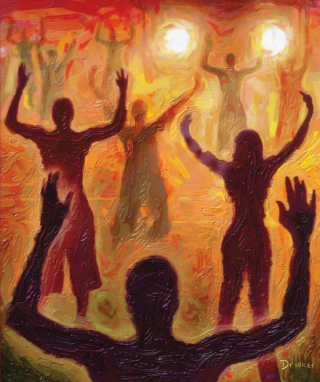
FERGUSON, Missouri—For a hundred and eight days, through the suffocating heat that turned the city into a kiln…
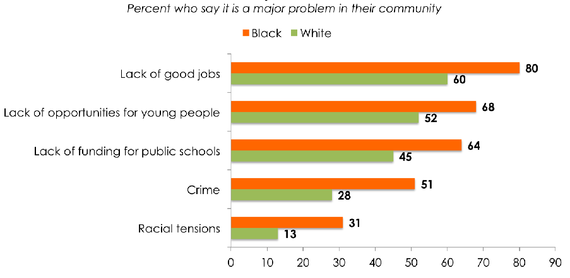
The shooting of unarmed black teenager Michael Brown by a white police officer in Ferguson, Missouri
I suppose there is no longer much point in debating the facts surrounding the shooting of Michael Brown.